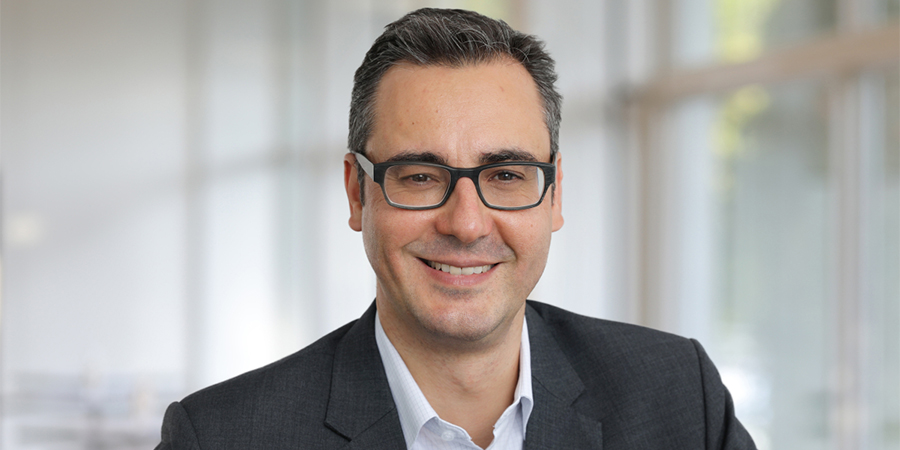Detecon has become a leading digital management consultancy company. In an exclusive interview with Telecom Review, Ralf Pitchler, CEO, Detecon gave an overview of the company’s journey and what businesses need to do in today’s digital world.
Can you give us an overview on Detecon’s history and the milestones you’re achieved so far?
Technology transformation and its potential have been the focus of Detecon’s work right from the very beginning. It was established in 1977 as “Deutsche Telepost Consulting” with the objective of offering telecommunications consulting services around the world.
Detecon’s main objective was always around technology transformation so its business quickly expanded to encompass computer science, mobile services, and digitalization.
In the 1980s, Detecon advanced the development of fixed network infrastructure in countries around the globe and made a name for itself in the context of the first German satellite project DFS Kopernikus. The introduction of ISDN marked the first digital transformation, which Detecon accompanied. This was followed by an active role in the development of the GSM standard as well as the prominent GSM project D1, which eventually became today’s T-Mobile International. As a part of this project, a team headed by Detecon project manager Friedhelm Hillebrand also invented the text message (SMS).
In the following years Detecon played a major role in starting up mobile operators around the world. Satellite technology, GPRS, GSM Rail, All IP, and next generation networks are other keywords which came to be associated with its name. The merger with the consulting firm Diebold in 2002 consolidated Detecon's reputation as a cross-industry specialist for the conception and implementation of digital strategies and business models.
Today Detecon is a leading digital management consultancy in central Europe with global reach, serving operators, the automotive industry, the public sector, the healthcare sector and the transport industry. As such, Detecon also serves the advisory pillar of T-Systems service offering.
What is the main consulting approach that Detecon adopts today?
The Detecon consulting approach can be broken down into the following three consulting areas:
-
Transformation and Innovation Advisory
It’s about boosting competitiveness, recognizing the latest innovations in the market and coping with the challenges of digital transformation. We advise our clients on how to build digital ecosystems and achieve innovation-driven digital growth as well as adaptive and innovative organizational structures. In doing so, we help our clients drive digital transformation from strategy to execution.
Our in-depth understanding of our focus industries enables us to help our clients to design new business models, a digital strategy and build relevant ecosystems. Beyond that, we assist them in their transformation to become an agile organization and manage their change toward a truly digital enterprise.
-
Technology Advisory
This consulting area is about finding the right technology, be it business or network technologies.
It is undeniable that technology is an integral and enabling part of modern business models. Innovative businesses thrive on hybrid cloud approaches, IoT solutions, networks, datacenters and such. Yet, for many businesses it is still a challenge to find the right technology fit.
Our tech experts and enterprise architects assist our clients in translating their digital strategy and its requirements into a technology landscape – from the business and application layer down to physical infrastructure. We design anything that needs implementation, migration and operation support in the future – our biggest field for collaboration within T-Systems. Given Detecon’s connectivity DNA we support also in the adjacent fields of cyber-security, smart production, cloud or IoT.
-
Organizational & Performance Advisory
This is mainly about enhancing the organization’s agility.
With We.Work.New., we recently implemented a project with T-Systems that addresses precisely this area. We even won the prestigious Best of Consulting Award for it. And T-Systems is not alone in thinking about this. Since covid-19, more and more companies have had to ask themselves how they want to work in the future. We help our clients find answers.
We advise our clients on how to achieve technology-enabled operational excellence and optimized processes through the use of digital technologies. Detecon´s Digital Maturity Model (DMM) or New Work Readiness Check are proven approaches to do so. Our Digital Engineering Center (DEC) serves as a laboratory providing us with early proofpoints and learnings for our clients.
“Connectivity unleashed” can be understood as a mission statement to support the expansion of modern digital infrastructure(s) that qualify for hyperconnected use cases, promote European edge and cloud initiatives (i.e. IPCEI, GaiaX, CatenaX)and uphold sustainability through digitalization.
So, it's not so much about unleashing something connectivity related yet as it is about preparing for a new kind of technology landscape that requires telcos, hyperscalers and governments to adapt to a changing playing field.
What would say is the most important advice that you can give to digital businesses?
My first advice to all businesses is to embrace and leverage digital technologies.
As cyber threats are on a rise, digital businesses rely more than ever on effective security measures. So, make digital infrastructures secure.
To remain on a growth path, prepare to meet potentially very heterogeneous regional requirements (regulatory, etc.).
Sustainability is not a passing craze. Develop industry standards for sustainability and start driving energy efficiencies.
Really try to understand your part in the game. After all, digital businesses always operate within an ecosystem.










